|
Peter Mansoor
Gen. Raymond E. Mason, Jr. Chair in Military History
Peter Mansoor was named a recipient of the 2018 Distinguished Undergraduate Research Mentor Award. Research mentors are nominated by undergraduate students who feel their mentor has demonstrated outstanding mentoring throughout their undergraduate research journey. The nominations are reviewed and winners are selected by the Office of Undergraduate Research and Creative Inquiry's Awards and Recognition Committee.
|
|
Paul Beck
Distinguished Professor Emeritus of Social and Behavioral Sciences
"John Kasich: Philosopher in chief?"
"Governor Kasich's State of the State Address"
"Kasich's jobs total falls under Strickland's for second year in a row"
"Democrats hoping to repeat Pennsylvania upset in Ohio"
|
|
Peter Shane
Jacob E. Davis and Jacob E. Davis II Chair in Law
"Sessions attacks 'activist judges' over 'sanctuary-cities' and DACA blocks"
|
Mershon Memo is a weekly e-mail newsletter distributed by the Mershon Center for International Security Studies, part of the
College of Arts and Sciences at The Ohio State University.
|
|
 |
|
Tuesday, March 20, 2018
3:30 p.m., 120 Mershon Center, 1501 Neil Ave.
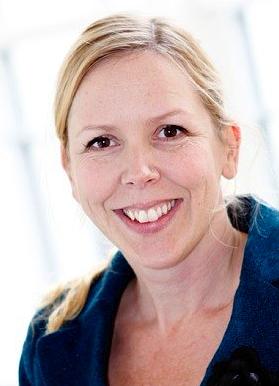 Ann Towns
Ann Towns is associate professor in political science at University of Gothenburg, Sweden. Her research deals with questions about norms, international hierarchies and resistance in international politics, generally with a focus on gender. She is currently conducting a large research project on gender norms and practices in diplomacy, an inter-state institution that has long been dominated by men but where more women have entered within the past decade. As part of this project, she will carry out field work among diplomats in Washington, D.C., during 2017-18 and in Stockholm 2018-19. Towns is the author of
Women and States: Norms and Hierarchies in International Society (Cambridge, 2010) and co-editor of
Gendering Diplomacy and International Negotiation, with Karin Aggestam (Palgrave, 2017). Read more and register at
go.osu.edu/townsa
|
Wednesday, March 21, 2018
3:30 p.m., 120 Mershon Center, 1501 Neil Ave.
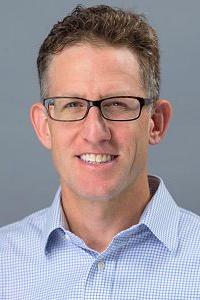 Joshua Busby
Joshua Busby is associate professor at the LBJ School of Public Affairs at University of Texas-Austin. He has published widely on transnational advocacy movements, climate change, global health, and other topics. Busby is the author of
Moral Movements and Foreign Policy (Cambridge, 2010), and
AIDS Drugs for All: Social Movements and Market Transformations, with Ethan Kapstein (Cambridge, 2013). He was a leading researcher on the Climate Change and African Political Stability (CCAPS) project, a $7.5 million grant from the Department of Defense under its Minerva Initiative. He is the principal investigator under the Complex Emergencies and Political Stability in Asia (CEPSA) project, a $2 million project also funded by the Minerva Initiative. At this event, Busby will discuss the field of environmental security and what might be done to address the real security consequences associated with climate change. Read more and register at
go.osu.edu/busbyj
|
Wednesday, March 28, 2018
3:30 p.m., 120 Mershon Center, 1501 Neil Ave.
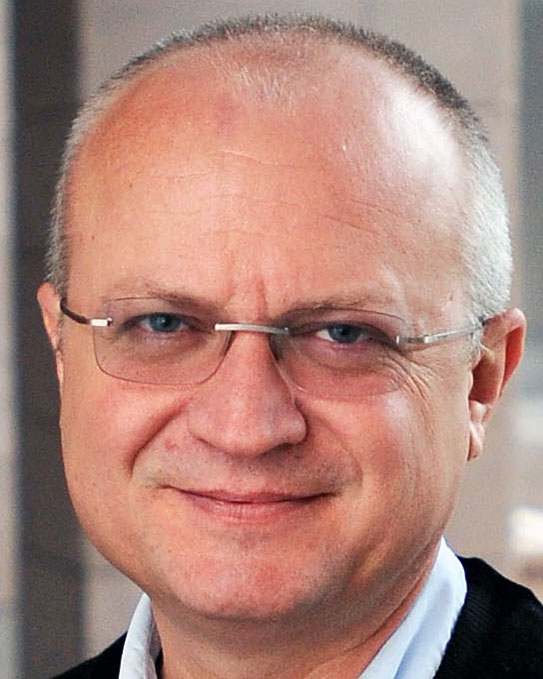 Ali Çarkoğlu
Ali Çarkoğlu is professor of international relations at Koç University in Istanbul, Turkey, where he has been
dean at the College of Administrative Sciences and Economics since 2013. His recent research focuses on voting behavior, party systems and political parties, religiosity, social capital, public opinion, and Turkish politics. At this event, Çarkoğlu will explore the influence of ideology and identity on public opinion about the use of force to support protesters with political claims in a neighboring state by
discussing three nationally representative field survey experiments conducted in 2014-15 outside the United States. Read more and register at
go.osu.edu/carkoglua
|
Thursday, March 29, 2018
The Future of the All-Volunteer Force and Democracy in America
8:30 a.m.-5 p.m., 120 Mershon Center, 1501 Neil Ave.
Co-sponsored by John Glenn College of Public Affairs and AVF Forum
 The United States fought the long and costly wars in Iraq and Afghanistan with an all-volunteer force, even as some service members were deployed for three and even four tours of duty. In the wake of these wars, it is appropriate and useful to discuss the state of America's all-volunteer force. How well has it worked? Will it work in the future? Is it fair, efficient, and sustainable? This conference, organized by retired Maj. Gen.
Dennis Laich (left),
Richard Herrmann, and
Trevor Brown, is part of a series of national events examining the all-volunteer force and democracy in America. It features well-known scholars and commentators on military affairs including Andrew Bacevich, Boston University; retired Col. Larry Wilkerson, College of William and Mary; and Lawrence Korb, Center for American Progress. Read more and register at
go.osu.edu/FutureofAVF
|
Friday, March 30, 2018
4 p.m., 347 University Hall, 230 N. Oval Mall
 Jenann Ismael
Jenann Ismael is professor of philosophy at University of Arizona. Most of her work falls into two classes. The first concerns the philosophy of physics including the structure of space and time, the foundations of quantum mechanics, the role of simplicity and symmetry in physics, and questions about the nature of probability, natural laws and causal relations. The second includes mind, cognition, phenomenology, and the nature of perspective. In this talk, Ismael will point out the connection between fatalism and determinism by linking determinism to totality and totality to transcendence to provide insight into the sort of freedom we have. Read more and register at
go.osu.edu/ismaelj
|
 |
 |
|
National Security, Emerging Technologies, and the Law
|
|
Dates: Friday, March 23 - Saturday, March 24, 2018
Location: Saxbe Auditorium, Drinko Hall, 55 W. 12th Ave.
"National Security, Emerging Technologies, and the Law" is a multidisciplinary exploration of emerging technologies that have profound implications for our national security and which pose important issues of both law and policy. Although lawyers and elected policy makers may have little understanding of the technical issues regarding cybersecurity or emerging capabilities in artificial intelligence, quantum computing, and cryptography, both the public and private sectors need to prepare for the global role such technologies will increasingly play.
 |
|
 |
David Ignatius
The Washington Post |
Panels on Friday, March 23, will explain the new technologies and explore their national security implications. Experts will consider whether the U.S. has the optimal institutional arrangements in place for both effective defense and strategic decision-making, and whether our government has the skills and personnel adequate to stay ahead of the technology. The day's discussion is intended to shed light on what roles government needs the private sector and the academy to play, and the kinds of oversight and public input that will be necessary to assure legal and political accountability for decision making regarding new technologies in the national security domain.
Panels on Saturday morning, March 24, will discuss how the role of technology in national security can effectively be taught in law schools, as well as the role of ethics in the use of national security technologies.
The lunch hour keynote speaker on Friday, March 23, will be best-selling author and award-winning journalist
David Ignatius (right), who will engage in conversation on the writing of both fiction and nonfiction focused on technology and national security.
This conference represents a collaboration between
I/S: A Journal of Law and Policy with the Standing Committee on Law and National Security of the American Bar Association. It is co-sponsored by the Moritz College of Law, and the college's Center for Interdisciplinary Law and Policy Studies and its Program on Data and Governance.
|
 |
 |
Friday, March 23, 2018
"The Once and Future Revolution: Social Upheaval and the Challenge of Rule during Mexico's Long Twentieth Century"
3 p.m., 165 Thompson Library, 1858 Neil Ave. Mall
Sponsored by Center for Historical Research
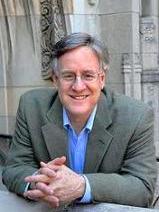 The Center for Historical Research welcomes Yale historian
Gilbert Joseph for a discussion of revolution as a force in Mexican society, politics, and U.S. relations through the 20th century and beyond. Joseph has shaped the field of modern Latin American history as president of the Latin American Studies Association, former editor of the
Hispanic American Historical Review, and author or editor of 17 books on revolution and social movements as well as U.S.-Latin American relations in the Cold War era, including
Revolution from Without: Yucatán, Mexico, and the United States, 1880-1924 (Alabama, 1993) and (with Jürgen Buchenau)
Mexico's Once and Future Revolution: Social Upheaval and the Challenge of Rule since the Late Nineteenth Century (Duke, 2013).
|
Friday-Sunday, March 23-25, 2018
2018 Midwest Slavic Conference
Mendenhall Laboratory, 125 S. Oval Mall
Sponsored by Center for Slavic and East European Studies and Midwest Slavic Association
The 2018 Midwest Slavic Conference will feature a day and a half of panels covering Central Europe, Eastern Europe, Eurasia, and Southeastern Europe from a variety of disciplines and perspectives. Undergraduate and graduate students, faculty, and independent scholars from across the country and outside the United States will participate.
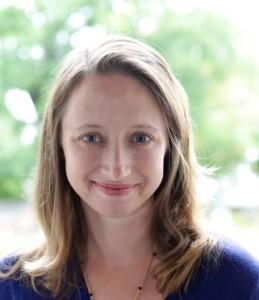 A reception and keynote address will open the conference on the night of Friday, March 23, featuring Tara Zahra (left) discussing her latest book, The Great Departure: Mass Migration from Eastern Europe and the Making of the Free World. On Saturday, March 24, the conference will open with a special plenary panel, "Borders, Barriers, and Belonging: A Spotlight on Global Migration." Jeffrey Cohen (Ohio State), Steven Lee (UC Berkeley), Eleanor Paynter (Ohio State), Sunnie Rucker-Chang (University of Cincinnati), and Johanna Sellman (Ohio State) will discuss movement and migration from the perspective of five world regions. A reception and keynote address will open the conference on the night of Friday, March 23, featuring Tara Zahra (left) discussing her latest book, The Great Departure: Mass Migration from Eastern Europe and the Making of the Free World. On Saturday, March 24, the conference will open with a special plenary panel, "Borders, Barriers, and Belonging: A Spotlight on Global Migration." Jeffrey Cohen (Ohio State), Steven Lee (UC Berkeley), Eleanor Paynter (Ohio State), Sunnie Rucker-Chang (University of Cincinnati), and Johanna Sellman (Ohio State) will discuss movement and migration from the perspective of five world regions.
The conference is open to students, faculty, independent scholars, and the public, but registration is required. Read more and register
|
Tuesday, March 27, 2018
"The Merchants of Siberia: Trade in Early Modern Eurasia"
12:30 p.m., 168 Dulles Hall, 230 Annie & John Glenn Ave.
Sponsored by Russian, East European, and Eurasian History Seminar
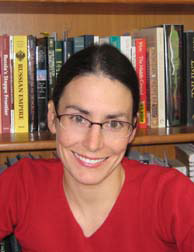 Erika Monahan
Erika Monahan is associate professor of Russian history at University of New Mexico. She will speak about her recent book,
The Merchants of Siberia: Trade in Early Modern Eurasia (Cornell, 2016), which received an honorable mention for the Early Slavic Studies Association Book Prize. In the book, Monahan reconsiders commerce in early modern Russia by reconstructing the trading world of Siberia and the careers of merchants who traded there. She demonstrates that trade was a key component of how the Muscovite state sought to assert its authority in the Siberian periphery. By contextualizing merchants and places of Siberian trade in the increasingly connected economies of the early modern period, Monahan argues that Russia was not the "outlier" that most 20th century characterizations portrayed.
|
Thursday, March 29, 2018
"The U.S. and China: Prospects for Trade and Security Relations"
11:30 a.m., The Boat House, 679 W. Spring St.
Sponsored by Columbus Council on World Affairs
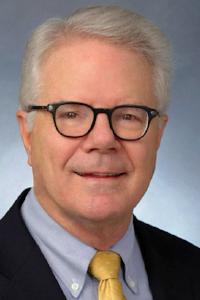 David M. Lampton
David M. Lampton is Hyman Professor and director of China Studies at the Johns Hopkins School of Advanced International Studies. Having started his academic career at The Ohio State University Lampton is chairman of the The Asia Foundation, former president of the National Committee on United States-China Relations, and former dean of faculty at SAIS. He is the author of
Same Bed, Different Dreams: Managing U.S.-China Relations, 1989-2000 (2001);
The Three Faces of Chinese Power: Might, Money, and Minds (2008); and
The Making of Chinese Foreign and Security Policy (editor, 2001). Hampton will discuss
what lies ahead in the U.S.-China relationship a
gainst a backdrop that includes nuclear threats between North Korea and the United States, an uncertain future in multilateral trade agreements around the globe, and critical midterm elections in the United States.
Read more and register
|
 |
 |
'Origins' examines mental health system in United States
The recent school shooting in Parkland, Fla., once again raised the question of the connection between mental illness and mass violence. But, if you suffer from a mental illness in the United States, you may find yourself thrown into a confusing and often contradictory system of doctors, clinics, institutions, home care, and drug regimens that is hardly a system at all. This month historian Zeb Larson traces how our response to the mentally ill has been shaped by a faith that such illness can be cured and a desire to deal with the mentally ill as cheaply as possible.
About Origins:
Origins: Current Events in Historical Perspective is a monthly ad-free magazine that features top scholars on today's most pressing topics. Published by The Ohio State History Department, its authors include National Book Award winners and world-renowned scholars. You can also explore
reviews of popular history books on the
Origins website as well as the new monthly feature
Milestones.
|
Authors of 'Teaching Interculturally' to speak Tuesday
On Tuesday (3/20) at 9:30 a.m. in the Ohio Union, University Center for the Advancement of Teaching is pleased to welcome the authors of
Teaching Interculturally: A Framework for Integrating Disciplinary Knowledge and Intercultural Development to Ohio State. Beyond buzzwords and platitudes, "intercultural pedagogy" is an approach to teaching that supports disciplinary learning and the inclusion of all students in the learning process. But how does one commit to, practice, and refine that approach? Driven by audience questions, this panel discussion and follow-up small groups will address the ways that an intercultural pedagogy can be adopted as a mindset and a framework for teaching.
Read more and register
|
Fulbright Week takes place March 26-30
The Office of International Affairs, the Graduate School and the Undergraduate Fellowship Office have combined efforts to plan a week full of events including, workshops, information sessions and open houses, to inform the campus community about the opportunities available through the Fulbright and Fulbright-Hays programs. All students, faculty and staff are welcome to participate in any of the Fulbright Week sessions held March 26-30, 2018. For details about events and a full calendar of Fulbright Week activities, visit
go.osu.edu/Fulbright
|
|
|